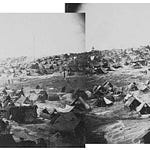Originally published on July 25, 2022 (Episode 273)
Introduction
On the morning of November 10, 1918, the night train from Berlin arrived at Warsaw station. One of its passengers was Józef Piłsudski. For twenty-six years he had fought for the liberation of Poland from the Russian Empire, working to recreate in an exile and then in truth an independent state and culture. At journey’s end he stepped onto a platform in the center of a free Poland, greeted by crowds who saw him as the nation’s leader.
Piłsudski did become that leader—and in 1922 ceded dictatorial powers to a democratic government. Yet just four years later, this avowed champion of democracy and pluralism staged a coup and ruled as dictator until his death in 1935. He imprisoned his enemies, suppressed the press, ignored the legislature, and alienated old allies. “So much did his style of rule change,” writes Joshua Zimmerman, “that he is often portrayed as if he were two entirely different men…Poland’s greatest champion for freedom and independence…abandoned the principle of democracy as freedom bound by the rule of law.”
About the Guest
Joshua Zimmerman is the Eli and Diana Zborowski Chair in Holocaust Studies and East European Jewish History and Professor of History at Yeshiva University. His books include The Polish Underground and the Jews: 1939–1945 and Poles, Jews and the Politics of Nationality: The Bund and the Polish Socialist Party in Late Tsarist Russia, 1892–1914. His most recent work is Józef Piłsudski: Founding Father of Modern Poland (Harvard University Press, 2022).
For Further Investigation
Joshua Zimmerman, Józef Piłsudski: Founding Father of Modern Poland (Harvard University Press, 2022)
Wacław Jędrzejewicz, Piłsudski: A Life for Poland (Hippocrene Books, 1981)
Antony Polonsky, Politics in Independent Poland (Oxford University Press, 1972)
Norman Davies, God’s Playground: A History of Poland, Volume II: 1795 to the Present (Oxford University Press, 2005)
Related conversations:
Men on Horseback: David A. Bell on charisma, revolutions, and the paradox of democratic leadership.
Episode 65: The First Year of the Russian Revolution with Rick Hernandez
💬 Listen & Discuss
What can Piłsudski’s transformation—from liberator to dictator—teach us about the dangers of charismatic leadership? Share your reflections in the comments, and pass this episode along to someone interested in Poland, democracy, or revolution.











